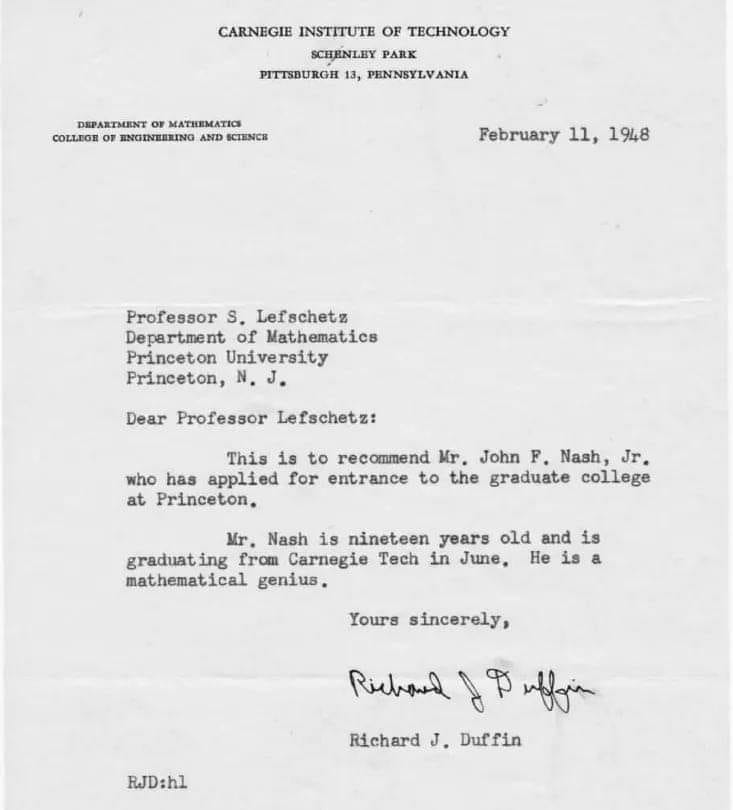# The Legendary Graduate School Recommendation for J. Nash
Written on
Chapter 1: An Extraordinary Letter of Recommendation
In 1948, John Nash, a gifted mathematician renowned for his innovative contributions to game theory and various other fields, applied to the prestigious mathematics graduate program at Princeton University. Accompanying his application was an extraordinary recommendation letter penned by his advisor at Carnegie Institute of Technology, Richard Duffin, which is now known as Carnegie Mellon University.

The letter from Richard Duffin, a distinguished mathematician in his own right, was succinct yet profoundly impactful. He stated:
“This individual is a mathematical genius.”
This brief yet potent remark served as a powerful endorsement of Nash’s intellectual prowess and future potential. The significance of Duffin’s support, combined with Nash’s impressive academic credentials, was instrumental in securing his admission to Princeton.
At Princeton, Nash flourished in an intellectually stimulating environment, showcasing his remarkable abilities. He made substantial contributions to diverse areas of mathematics, including game theory, differential geometry, and partial differential equations. His groundbreaking work on game theory, particularly the formulation of the Nash equilibrium concept, has influenced various fields such as economics, political science, and evolutionary biology.
Nash’s doctoral dissertation, titled “Non-Cooperative Games,” established the foundation for the Nash equilibrium and significantly shaped the field of game theory. For his pioneering achievements, he was awarded the Nobel Prize in Economic Sciences in 1994, sharing the honor with John C. Harsanyi and Reinhard Selten.
In addition to his groundbreaking work in game theory, Nash contributed significantly to the study of manifold embeddings and the theory of partial differential equations. Despite facing personal challenges, including struggles with mental health, his brilliance and influence in mathematics and other domains have left an enduring legacy in academia and beyond.
Thank you for taking the time to read this. If you enjoyed this story, please feel free to hit the clap icon as many times as you'd like. If you'd like to support my work, consider becoming a Medium member through this link or buy me a coffee. Stay tuned for more intriguing stories!